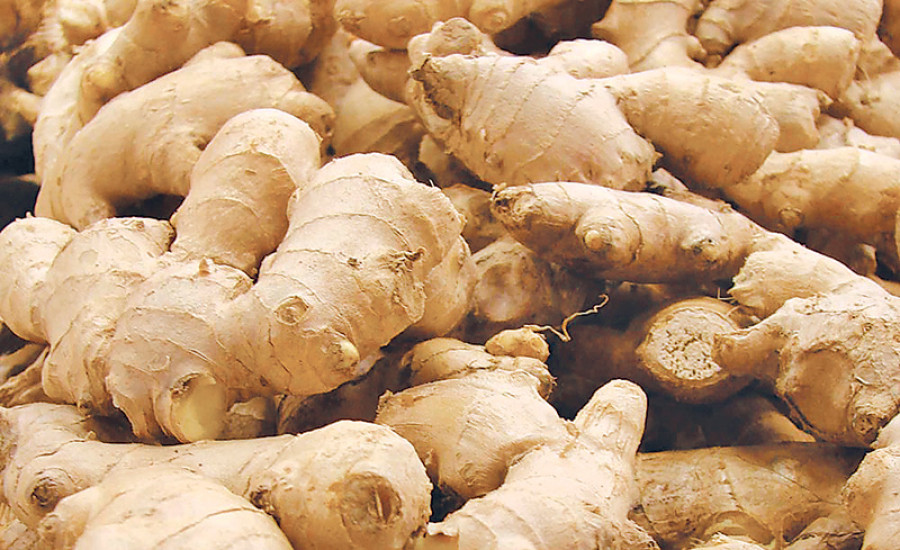Money
India imposes GST on Nepali ginger
Ginger worth Rs5 million has been stranded in Mechi Customs Office after Indian customs officials imposed goods and services tax of 5 percent on the Nepali spice.
Ginger worth Rs5 million has been stranded in Mechi Customs Office after Indian customs officials imposed goods and services tax of 5 percent on the Nepali spice.
Nepali traders have long been exporting fresh ginger to India. Fresh ginger is exempt from goods and services tax introduced by India in June. But Nepal has long been exporting fresh ginger as ‘dry ginger’, which attracts goods and services tax in India.
“Since Nepal has been exporting fresh ginger as dry ginger, Indian customs officials are demanding that the tax be paid before the spice enters the Indian territory,” ginger traders said.
Traders said they explained this issue to Indian customs officials. “But they said they need orders from higher authority.”
If Nepali traders pay the tax amount, they will end up forking out Rs10,000 for each truck of ginger that enters India, according to Shyam Subba, a customs agent. On top of that, Rs1,700 per truck has to be paid as “quarantine charge”, Subba said. “As a result, around 100 trucks laden with ginger are stranded on the Nepal-India border,” added Subba.
If India decides to impose the tax on Nepali ginger, the entire sector will collapse, said Bhakta Bahadur Thapa, a ginger trader.
India is the major market for Nepali ginger. Almost 94 percent of the spice exported to India is fresh and the rest is processed ginger.
Ginger is grown on more than 23,800 hectares of land across the country. As per the statistics of the Ministry of Agricultural Development, the country produced 242,546 tonnes of ginger in the fiscal year 2015-16, 60 percent of which was exported.
Data show Jhapa, Taplegunj, Panchthar and Ilam districts alone produce around 70,000 tonnes of ginger.
Globally, Nepal is the third largest ginger producer after China and India. According to Nepal Ginger Profile 2016, which was produced jointly by the UK Aid-funded Samarth-Nepal Market Development Programme and the Nepal Ginger Producers and Traders Association, the ginger grown in Nepal is high in oil and oleoresin, and can be sold to large industrial buyers in India and other countries if output is increased and quality is ensured.
But Nepali ginger traders have long been facing various trade barriers while exporting the produce to India.
Narendra Khadka, president of the Federation of Nepalese Chambers of Commerce and Industry (Province 1), said he has already informed officials of the Ministry of Commerce and the Ministry of Agricultural Development about the latest issue. “But they are least bothered about the problem,” said Khadka, adding, “If India continues to create these kinds of barriers, exports of Nepali agricultural products to India will suffer.




 9.89°C Kathmandu
9.89°C Kathmandu














